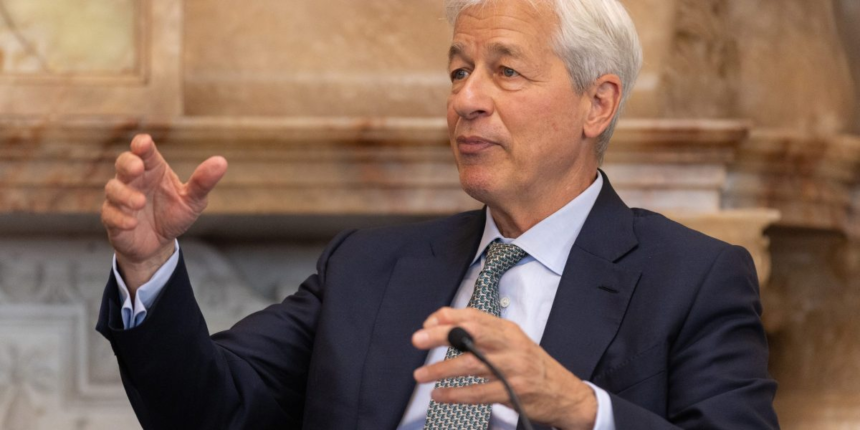As banks like Dimon’s have been forced by regulations to reduce corporate lending, private credit has become a go-to source for everything from leveraged buyouts to business expansions, offering attractive returns but also carrying higher risks.
“I would say it’s not high in my list,” Dimon said about JPMorgan buying a private-credit firm, adding he would have a “slight reluctance,” depending on the acquisition target. Then he offered a nuanced explanation, reiterating “credit spreads are very low.”
Dimon was suggesting that credit spreads—the extra yield lenders demand for risk—have shrunk to levels that no longer compensate for potential losses. Coupled with looser underwriting and increased leverage, Dimon implicitly suggested we’re seeing echoes of risk cycles that preceded past credit busts. In flat terms: Too much capital is chasing too few quality opportunities, driving up risk while driving down returns.
Dimon’s remarks are notable for several reasons, ranging from the impact on corporate borrowing to macroeconomics. A peaking private-credit market suggests “easy money” is ending—businesses may soon face stricter lending standards and higher costs, which could dampen expansion or M&A activity. Many pension plans, endowments, and affluent investors have loaded up on private credit for yield. If defaults rise or liquidity dries up, retirement plans and wealth portfolios could suffer unexpected losses at inconvenient moment in the economic cycle, or worse.
Private credit isn’t subject to the same regulations or oversight as banks, raising contagion risk if the market seizes up. Dimon is essentially signaling that what looks like healthy innovation can morph into a vulnerability if risk is mispriced en masse. Dimon’s warning also comes in a context of elevated asset prices and policy uncertainty, when monetary policy is in flux and economic growth is cooling—a recipe for for a credit accident cocktail.
A peak for private capital would signal tighter lending ahead: Companies—especially mid-sized and riskier firms—may find it harder or more expensive to borrow. This could slow expansion, hiring, and deal-making. As private lenders pull back, traditional banks may regain market share, but with stricter terms and higher scrutiny.
For this story, Fortune used generative AI to help with an initial draft. An editor verified the accuracy of the information before publishing.









